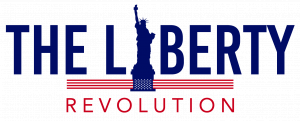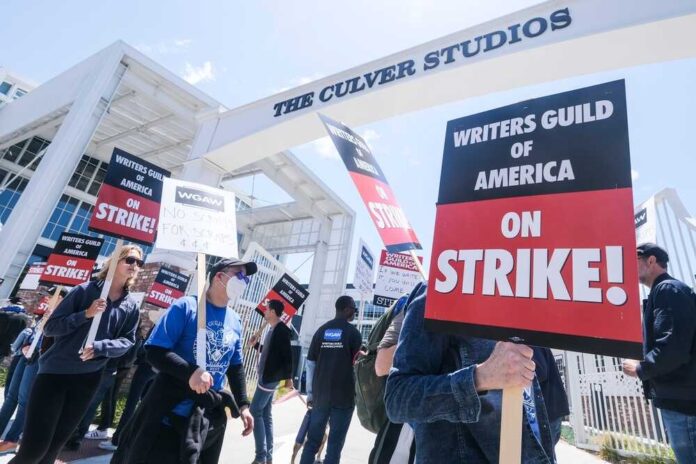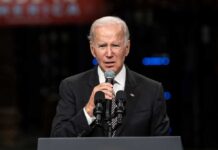The first Hollywood writers’ strike in 15 years kicked off on Tuesday with members of the Writers Guild of America (WGA) taking to the picket line outside of major TV and film studios to demand better pay, the Associated Press reported.
About 11,500 television and film writers began a work stoppage after negotiations with the trade association representing studios and production companies failed to reach a new contract.
The WGA is seeking a higher minimum pay scale, shorter exclusive contracts, and more writers per show – conditions the union says have diminished amid the content boom caused by streaming services.
Depending on how long the work stoppage lasts, it could have a cascading effect on film and television production, especially coming as streaming services are under intense pressure from Wall Street to show profits.
Just as it did during the 2007 writers’ strike that lasted 100 days, late-night television was the first to feel the impact of Tuesday’s stoppage as late-night programming requires a full staff to write the nightly monologues and jokes.
Every top-rated late-night show immediately shut down production on Tuesday, with “The Tonight Show,” “The Late Show,” “The Daily Show,” “Jimmy Kimmel Live,” and “Late Night” making plans to air reruns for the rest of the week.
NBC announced on Tuesday that the upcoming broadcast of “Saturday Night Live” featuring guest host Pete Davidson was canceled due to the strike. The live late-night staple will be airing reruns until further notice.
During his Monday broadcast, “Late Show” host Stephen Colbert defended the writers’ union, saying that the country “owes so much to unions.” Calling the writers’ demands “not unreasonable,” Colbert expressed his hope that both sides can reach a deal.
For scripted television shows and movies, the impact of the writers’ strike will take longer to notice. If the strike extends into the summer, the fall television schedule will likely be upended. Meanwhile, productions with completed scripts will be able to continue shooting until the scripts run out or the strike ends, whichever comes first.















